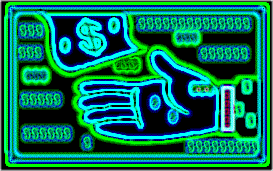| Court Upholds SAN FRANCISCO (Reuters) - A federal appeals court on Tuesday upheld a $5.4 million jury decision that pop superstar Michael Bolton partly plagiarized one of his biggest hits -- ''Love Is a Wonderful Thing'' -- from legendary soul singers the Isley Brothers. The 9th Circuit Court of Appeals, in a 3-0 decision, turned down Bolton's request for a new trial and affirmed the 1994 jury verdict awarding the Isley Brothers $5.4 million as part of the profits from Bolton's 1991 smash. "In this case, the Isley Brothers undoubtedly contributed something original to 'Love Is a Wonderful Thing,' the court said. "Having found that the law was properly applied in this case, we leave the district court's decisions and the jury's credibility determinations undisturbed.'' Spokesmen for both Bolton and the Isley Brothers had no comment on the ruling. Bolton and the Isleys have been at loggerheads since 1994, when a Los Angeles jury voted that Bolton's "Love Is a Wonderful Thing" was taken in part from a little-known 1966 Isley Brothers song of the same name. The jurors decided that the Isley Brothers were entitled to 66 percent of the profits from the song. It also said that the song was responsible for 28 percent of the sales of the album that contained it, "Time, Love & Tenderness.'' Bolton said at the time the jury's decision would cost him millions of dollars but he would not be more specific. The album has sold 10 million copies worldwide and brought Bolton and co-writer Andrew Goldmark a Grammy award. The court subsequently ordered Sony, Bolton's music company, to pay $4.2 million, Bolton himself to pay $932,924, Goldmark to pay $220,785 and music publishing companies to pay $75,900. In the case, the Isley Brothers, known for such golden-oldie hits as "Lonely Teardrops,'' "Twist and Shout'' and "Fight the Power,'' accused Bolton of infringing copyright. But Bolton said he and Goldmark had never heard of the song, which he said had never appeared on an Isley Brothers album until 1991, after he had registered his own hit. The 9th Circuit, however, said it appeared likely that the black Isley Brothers, who enjoyed widespread popularity in the 1960s, had made an impression on white teenagers like Bolton and Goldmark at the time. "It is entirely plausible that two Connecticut teenagers obsessed with rhythm and blues music could remember an Isley brothers' song that was played on the radio and television for a few weeks and subconsciously copy it 20 years later,'' the court said. In its decision the appeals court moved cautiously through the thicket of copyright law, noting only in this case that the jury in the case appeared to have applied the law correctly. "Proof of copyright infringement is often highly circumstantial, particularly in cases involving music,'' the court said in its decision. "(Therefore) appellate courts have been reluctant to reverse jury verdicts in music cases.'' |
